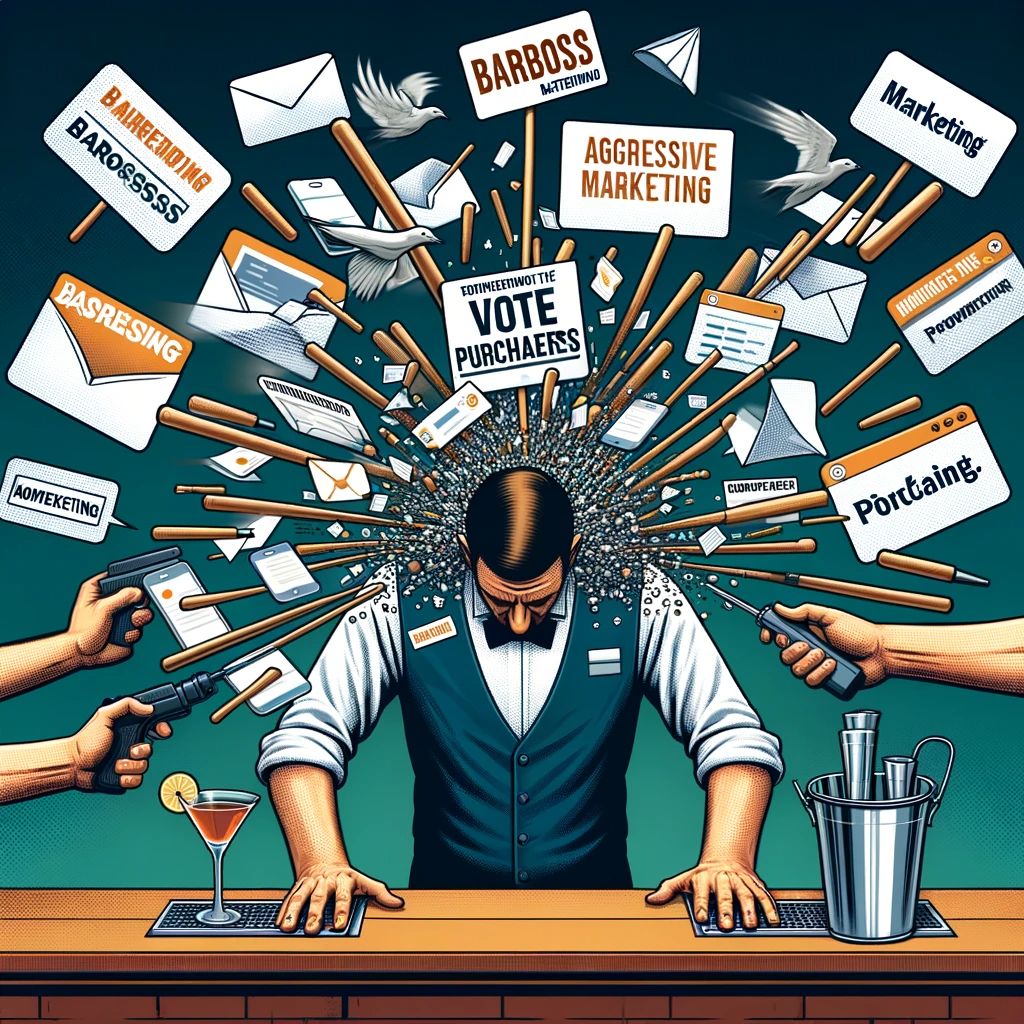BAR BOSS: A Bartender Competition That Has Nothing to Do with Actually Bartending
The Barboss competition began as a celebration of bartending artistry but devolved into a high-stakes spectacle driven by social media votes and questionable ethics.



The Barboss competition began as a celebration of bartending artistry but devolved into a high-stakes spectacle driven by social media votes and questionable ethics.


Barboss: A Bartender Competition That Shattered Its Own Identity
A Cocktail Contest, a Money Grab or a Social Media Campaign?
The Barboss competition, backed by Dos Hombres and managed by Colossal, was initially celebrated as a platform to showcase bartending talent. But as the event unfolded, it morphed into a relentless pursuit of social media votes, overshadowing the art of mixology it sought to honor.
The competition’s backdrop was to highlight the best in bartending. However, Barboss spiraled into a spectacle veering from the noble craft of mixology. Instead of celebrating artistry, the contest devolved into a disturbing trend of vote-seeking frenzy across social media platforms.
Participants, barred from purchasing votes themselves, turned to their networks in a desperate quest for external support. The drive led to a barrage of social media appeals, with competitors almost begging for votes, thus distorting the competition’s focus on professional excellence. Social timelines were filled with messages such as:
Notably, this frenzied activity drew the attention of platforms like Facebook, which began flagging Barboss-related content as spam. Posts with Barboss links were increasingly removed, resulting in account bans for a number of participants. Many found their personal and professional lives impacted, as social media accounts form a crucial part of their work in the industry.
As the contest progressed, Barboss morphed into a contest of influence rather than skill. Although direct vote purchases were prohibited, participants leveraged their social media followings to rally votes. Over time, the competition became a question of who could engage their audience the most and navigate the system’s “2-for-1 Impact Votes” offer.

The continuous pressure to solicit votes created an unbalanced environment, swaying the focus away from bartending skill. Examples of typical social media solicitations include:

These tactics created unpredictable leaderboard swings, with contestants leaping from the bottom to the top in a day. These surges often came during donation-matching periods, where financial support (rather than demonstrated skill) became the deciding factor.
The competition’s social media-heavy dynamics favored contestants with a significant online influence. In one notable case, a part-time bartender with limited experience became a frontrunner thanks to her 50,000 Instagram followers, gained through modeling rather than mixology.
This blatant skewing of results against skilled professionals highlights a deeper issue within modern bartending competitions: the growing dominance of social media clout over craft.

As the contest advanced, financial and ethical concerns surfaced regarding Colossal’s management, participant fundraising, and the associated charities.
Investigations on Reddit unearthed troubling overlaps between Barboss-related organizations, particularly DTcare and DTGruelle LLC, a logistics company. Reddit users found that:
These findings raised suspicions about the allocation of funds raised through vote purchases, as much as 50% of which went to charities with allegedly questionable use of donations.
The Barboss debacle has raised calls for greater transparency and a return to authenticity in bartending competitions. The overt reliance on online popularity and aggressive financial tactics weakened the competition’s original intent to elevate industry excellence.
The fallout around Barboss highlights important opportunities for industry reform:
As the industry reflects on these lessons, the hope is for future contests to honor the artistry, innovation, and professionalism that define bartenders worldwide.
Author: Anonymous | © Team at Bartending News